Protect Your Sleep And Your Quality of Life
Obstructive Sleep Apnea is a common, yet serious condition where your breathing stops and restarts during sleep repeatedly throughout the night due to an obstruction in the throat. This obstruction is caused by the muscles and tissues in your mouth and throat relaxing too much and causing your breathing to become restricted. In order to protect you, your brain jolts you awake so that you can breathe again. This interruption can happen anywhere between five and upwards of thirty times an hour.
Not only does this condition rob you of a solid night’s rest, but also as these episodes occur, your body and brain are being consistently deprived of the oxygen they need to function. If left untreated, sleep apnea can have serious physical, mental, and interpersonal consequences, which is why Dr. Schumacher encourages seeking effective sleep apnea treatment.
Read on to learn more about the ways untreated sleep apnea can impact you and why treatment is so essential to your quality of life.

Sleep Apnea & ADHD
When you suffer from sleep apnea, you’ll often feel tired during the day, unmotivated, and irritable. These symptoms are also common signs of the neurodevelopmental disorder known as attention deficit hyperactivity disorder (ADHD). The relationship between ADHD and sleep apnea is complex and modern research has yet to discover which one causes the other. However, we do understand that the two are linked, and getting a sleep study will confirm a proper diagnosis so that you aren’t wasting time, money, or taking unneeded medication while trying to address your symptoms.

Sleep Apnea & Your Child
Children can be highly sensitive to the symptoms of sleep apnea. Your child requires much more sleep than an adult because they are still growing and the rest helps them develop properly. When that sleep is disrupted, it can lead to issues with their physical and mental health. Oftentimes, the effects of sleep deprivation can be misdiagnosed as behavioral problems, so a proper diagnosis is often necessary to help both you and your child sleep easier.

Sleep Apnea & Strokes
Sleep apnea is a common yet serious sleep disorder that causes your breathing to repeatedly stop and start during the night. This condition can have significant consequences for your overall health, especially your cardiovascular system. One of the most alarming risks linked to untreated sleep apnea is an increased likelihood of strokes. Our trusted Farmington, NM sleep dentist, Dr. Charles Schumacher can help you explore how sleep apnea can elevate your stroke risk and what steps you can take to protect your health.

Sleep Apnea & Weight
Carrying excess weight, especially around the neck, can be a crucial risk factor in developing sleep apnea. Excess weight around the neck constricts your airways and weighs down the muscles of your mouth and throat, causing disordered sleeping patterns. Additionally, other weight-related health issues can develop due to sleep apnea such as cardiovascular disease and Type 2 diabetes. Ensuring your body gets energizing movement every day in tandem with consuming foods that provide your body with healthy fuel can help keep excess pounds at bay and reduce or eliminate symptoms of sleep apnea.

Sleep Apnea & Your Relationships
While sleep apnea has many impacts on your physical and mental health, it can also impact those around you through your actions and symptoms. One of the most prominent symptoms of sleep apnea is snoring which can be disruptive to your bedmate and impact the quality of their sleep. As well, sleep apnea can make you irritable, unmotivated, and unfocused which can put a strain on both personal and professional relationships. Getting the sleep you need can make a difference in your interactions with others.

Sleep Apnea & Technology
In the realm of sleep disorders, one condition stands out for its prevalence and potential health risks: sleep apnea. This disorder, characterized by interrupted breathing during sleep, affects millions worldwide. Fortunately, the intersection of medicine and technology has introduced groundbreaking innovations in diagnosing and treating sleep apnea.

Sleep Apnea & Pregnancy
Pregnancy can be a beautiful process as the body creates and sustains a new life. However, pregnancies are not without risk and if you suffer from sleep apnea, it can lead to difficulties that can affect both you and your future child. Pregnancy increases the risk of developing obstructive sleep apnea due to the higher levels of estrogen alongside other hormonal changes.
Certain hormonal changes associated with pregnancy can cause the mucus membranes in the nose to swell. This can create nasal congestion and cause swelling of the lining of your airway, which can constrict airflow. If you’re currently pregnant or plan to become pregnant, receiving proper treatment for sleep apnea can help protect the safety of you and your future child.

Sleep Apnea & Your Mental Health
When the brain is deprived of oxygen, it can make functioning incredibly difficult and strained. Anxiety and mood disorders such as depression are often comorbid with sleep apnea, as the symptoms can overlap and worsen each other. If you suspect you have sleep apnea, receiving a proper diagnosis and effective treatment when necessary can improve your peace of mind.
Reclaim Your Sleep With Treatment
Your body needs quality sleep, no question about it. If sleep apnea is disrupting your sleep, seeking treatment can make a positive difference in your quality of life. Luckily treatment is simple and available at Desert Hills Dental Care. The first step is scheduling your complimentary consultation with Dr. Schumacher. He’ll be able to talk with you about your symptoms and, if needed, recommend a sleep study to confirm a diagnosis so that we can help create your personalized treatment plan.
Frequently Asked Questions
What types of sleep apnea are there?
There are three types of sleep apnea, all of which result in the inability to breathe normally during sleep. As a defense, your body jolts you awake so that you can resume breathing. The difference lies in the reasons behind the inability to breathe.
Obstructive Sleep Apnea (OSA)— During rest, your throat muscles and mouth tissues relax to such a degree that they cause an obstruction in the throat. This form is the easiest to treat as treatment methods are designed to remove the obstruction during rest.
Central Sleep Apnea (CSA)—During sleep, the brain and body have trouble communicating and the body doesn’t always receive the signal to breathe. This form cannot be treated by a dentist, as it often develops due to an underlying issue. Treatments are usually geared towards addressing the underlying issues so that symptoms will subside.
Mixed or Complex Sleep Apnea (MSA)—As the name suggests, this form is complicated due to the fact that patients diagnosed will exhibit symptoms of both OSA and CSA. This means treatment will usually be geared towards removing any obstructions from the throat while treating an underlying condition.
Will sleep apnea go away on its own?
Unfortunately, sleep apnea does not go away and professional intervention is needed in order to manage symptoms. Luckily, with our convenient oral appliances, treating your sleep apnea is easier and more comfortable, so you can rest easy once again.
How is sleep apnea treated?
While CPAP is effective in managing obstructive, central, and complex sleep apnea, patients often find this device to be uncomfortable, loud, and bulky to the point that many patients cease treatment. At Desert Hills Dental Care, we provide personalized oral appliances as an effective solution for treating sleep apnea and an alternative to CPAP.
Lifestyle changes such as weight loss, positional therapy reducing alcohol intake, and quitting smoking can also help mitigate symptoms. Depending on your unique situation, Dr. Schumacher may recommend lifestyle adjustments as part of your treatment plan. In extreme cases, surgery to remove tonsils or other tissues that obstruct airflow may be suggested to treat sleep apnea. However, Dr. Schumacher always begins with non-invasive recommendations.
Visit Desert Hills Care Dental Today
Sleep apnea impacts more than just your sleep. If left untreated, it can negatively affect many areas of your life. If you suffer from sleep apnea, Dr. Schumacher can help you reclaim your sleep and protect your overall health with effective treatment. If you have any questions about sleep apnea and its effect on the mind and body, or if you’re ready to schedule an appointment with Dr. Schumacher at our Farmington office, give us a call at (505) 427-2936 or fill out the form at the bottom of this page. We’ll be happy to assist you.
